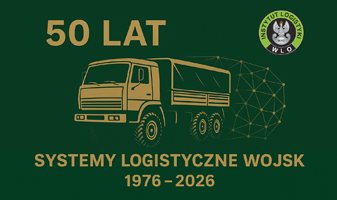ARTYKUŁ ORYGINALNY
Development of pricing policy for car parking in Ukrainian cities
1
Department of Urban Planning, Kyiv National University of Construction and Architecture, Ukraine
2
Faculty of Social Sciences and Social Technologies, National University of Kyiv-Mohyla Academy, Ukraine
3
Department of Management, Finance and Business Administration, International European University, Ukraine
A - Koncepcja i projekt badania; B - Gromadzenie i/lub zestawianie danych; C - Analiza i interpretacja danych; D - Napisanie artykułu; E - Krytyczne zrecenzowanie artykułu; F - Zatwierdzenie ostatecznej wersji artykułu
Data nadesłania: 15-10-2024
Data akceptacji: 30-12-2024
Data publikacji: 31-12-2024
Autor do korespondencji
Volodymyr Tarasiuk
Department of Urban Planning, Kyiv National University of Construction and Architecture, 31 Povitroflotskyi Ave, 02000, Kyiv, Ukraine
Department of Urban Planning, Kyiv National University of Construction and Architecture, 31 Povitroflotskyi Ave, 02000, Kyiv, Ukraine
SLW 2024;61(2):37-52
SŁOWA KLUCZOWE
DZIEDZINY
STRESZCZENIE
The purpose of the paper is to develop effective approaches to improving hourly parking pricing policies in Ukraine, considering both local and international best practices. The paper poses the following research problem: how to design a parking pricing system that efficiently manages demand, reduces urban congestion, and aligns with sustainable development goals. The paper poses the following hypothesis: performance-based pricing, incorporating factors such as parking demand, duration, and purchasing power, is more effective in managing urban parking resources than traditional fixed-rate systems. The research presented in the paper fills a research niche in the field by addressing the lack of dynamic pricing models in Ukrainian cities and their integration with broader urban planning and post-war reconstruction efforts. The study analyzed parking prices in Ukraine and selected European countries, both in nominal terms and adjusted for the purchasing power index, highlighting significant disparities and the need for localized solutions. The main conclusions of the research are that dynamic pricing strategies, supported by advanced technologies such as smart parking meters and automated data collection systems, can enhance the efficiency of parking management. Such approaches not only optimize parking space turnover but also influence driver behavior, contributing to reduced congestion and emissions. However, their implementation requires substantial financial and human resources, which are currently limited in Ukraine. As such, broader application of these strategies may only become feasible after the completion of the war and with increased involvement of international donors. The findings provide a foundation for improving parking pricing policies in Ukraine, particularly in the context of urban logistics and sustainable development.
Udostępnij
ARTYKUŁ POWIĄZANY
Przetwarzamy dane osobowe zbierane podczas odwiedzania serwisu. Realizacja funkcji pozyskiwania informacji o użytkownikach i ich zachowaniu odbywa się poprzez dobrowolnie wprowadzone w formularzach informacje oraz zapisywanie w urządzeniach końcowych plików cookies (tzw. ciasteczka). Dane, w tym pliki cookies, wykorzystywane są w celu realizacji usług, zapewnienia wygodnego korzystania ze strony oraz w celu monitorowania ruchu zgodnie z Polityką prywatności. Dane są także zbierane i przetwarzane przez narzędzie Google Analytics (więcej).
Możesz zmienić ustawienia cookies w swojej przeglądarce. Ograniczenie stosowania plików cookies w konfiguracji przeglądarki może wpłynąć na niektóre funkcjonalności dostępne na stronie.
Możesz zmienić ustawienia cookies w swojej przeglądarce. Ograniczenie stosowania plików cookies w konfiguracji przeglądarki może wpłynąć na niektóre funkcjonalności dostępne na stronie.


